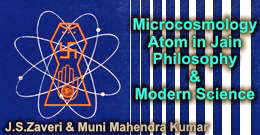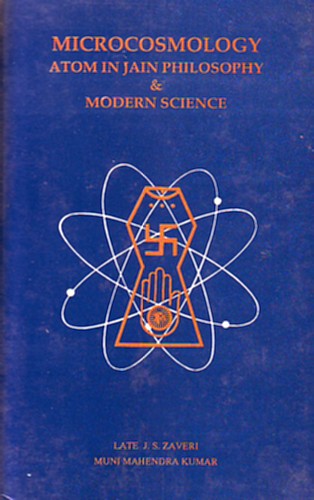
Pudgala - General Properties
Psychical and physical orders of existence act and are acted upon by one another. Pudgala has the propensity for being attracted (and transformed) by conscious substance (or jiva). Each individual jiva, in its worldly existence or unemancipated state, continuously interacts with karma-pudgala or karmic matter.
It has already been stated that all the different groups (varganas) of pudgala do not interact with the jiva. The eight groups of pudgala, which do interact with jiva, will be briefly described in the next section.
Out of these, the group, which interacts ceaselessly with jiva,is karmana group or karma pudgala. The union between the psychical and the physical is devoid of priority and posteriority, and so intimate, that for all practical purposes they appear to be identical and inseparable in the state of worldly existence.
By its own nature, the jiva is always changing, but in the state of worldly existence the change is determined mostly by the nature of the karma that is associated with it. Again, the nature of the karma itself is determined by the nature of the passions and perversion of the jiva and the intensities of passions, etc., are again determined by the nature of the karma. Thus, they are mutually interdependent.
The karma matter associated with jiva determines not only the nature and intensities of passions, but also the life-span type of gross body viz., audarika or vaikriya, during the life-span etc. The gross body is then the instrument of experiencing pleasure and pain, happiness and miseries of worldly existence. The nudsala of other varganas viz. audarika, svasa-ucchvasa, bhasa, and manas are also essential for the vital functions of life viz. metabolism, respiration, speech and thought respectively, which keep the body and soul together.
Physical karma (dravya karma) and its spiritual counterpart (bhava karma) viz., passions and perversities of the soul are thus mutually related as cause and effect, each of the other. [Astasahasri, p. 51.] Thus the bound-karma begets sarira (body), mind and speech and their activities - physical, mental and vocal - attract karma-pudgala which then is inseparably bound up with the soul.
The entire space is filled up by the pudgala of karma vargana, but only those aggregates, which occupy the same space as the jiva, can be associated with it. Passions generated by the interaction of karma and contaminated jiva are the cause of attracting the new karma-pudgala. Thus corruption begets corruption. (Emancipated jiva is free from passions and, therefore, does not attract contaminating karma-pudgala).
It should be remembered that the free paramanus (i.e. the ultimate atoms) do not interact with the psychic existence.
Although the detailed discussion of Jaina Doctrine of Karma is important and interesting, it is, however, far beyond the scope of this book.
 Jethalal S. Zaveri
Jethalal S. Zaveri
 Prof. Muni Mahendra Kumar
Prof. Muni Mahendra Kumar

